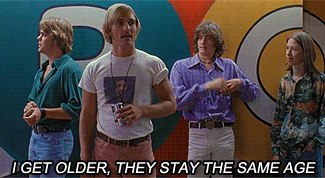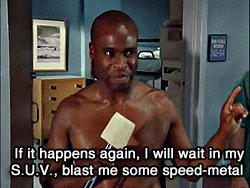- Joined
- Jul 5, 2012
- Messages
- 2,652
- Reaction score
- 1,285
- Points
- 5,316
- Location
- Starship Enterprise
- Medical Student
Advertisement - Members don't see this ad
EDIT: This was supposed to be a thread about the first day of SN2. However as with all intelligent life, things evolve. This thread has now become a support page for people following the SN2 plan. You can think of it as Alcoholics Anonymous for people studying to take the MCAT using the SN2 plan.
EDIT July 1, 2014:
If you are interested in @mehc012's Anki Deck, DO NOT SEND A PM. Here is the link: https://www.dropbox.com/s/7if6wgaif98rkoa/mehc012 SN2edCh4s.apkg
**A NOTE: @mehc012 and several others (myself included) want to tell you guys that studying from another person's deck will probably not be as beneficial to you as creating your own cards. Yes you can take advantage of @mehc012's generosity, but you won't get the same advantage. Study the material. Create cards as you go along. You will find it more helpful to your studying. **
EDIT July 22, 2014:
The following is @TBRBiosadist's official MCAT Verbal Reasoning Strategy:
@TBRBiosadist's strategy that got [him] from a 7 average to scoring 13-15 average..
Spend the bulk of your time reading. Up to 3 minutes per passage.
Or to summarize in one sentence
Understand what the hell the author is arguing
EDIT July 26, 2014:
@DoctorInASaree uploaded a guide to Verbal Reasoning. If you're interested, it's worth a look. Here is the link: https://www.dropbox.com/s/2byivymmqwlvjms/MCAT VR Primer DRSAREE.pdf
EDIT 2, July 26, 2014: http://forums.studentdoctor.net/threads/sn2d-first-day.1074344/page-52#post-15510851
________________________________________________
Just finished the first day of SN2...man is it long and exhausting.
The first day is BR physics chapter (translational motion) + 1/3 of the passages. I felt like I wasn't able to apply the stuff I read into the stuff I was tested on.
Has anyone felt this way when following the schedule? It just seems like the contents of the chapter didn't really stick in my head when I took the practice passages. Will this improve over time?
EDIT 3, March 4, 2015:
For verbal, if you are feeling lost and confused, I highly highly recommend you to look into the MCAT Strategy Course by @Jack Westin. I've been working with him, and nothing comes close to his course and teaching. It's a strategy course, so it will cover everything, not just the VR/CARS section.
EDIT July 1, 2014:
If you are interested in @mehc012's Anki Deck, DO NOT SEND A PM. Here is the link: https://www.dropbox.com/s/7if6wgaif98rkoa/mehc012 SN2edCh4s.apkg
**A NOTE: @mehc012 and several others (myself included) want to tell you guys that studying from another person's deck will probably not be as beneficial to you as creating your own cards. Yes you can take advantage of @mehc012's generosity, but you won't get the same advantage. Study the material. Create cards as you go along. You will find it more helpful to your studying. **
EDIT July 22, 2014:
The following is @TBRBiosadist's official MCAT Verbal Reasoning Strategy:
@TBRBiosadist's strategy that got [him] from a 7 average to scoring 13-15 average..
Spend the bulk of your time reading. Up to 3 minutes per passage.
- Read the first and last paragraph thoroughly to begin with. Understand what the authors main point will be because 90% of questions require nothing more than a general idea.
- After this, read the entire passage slowly enough where you dont feel like you need to reread sentences for understanding.
- Unless the passage is asking you about a specific detail, dont look back. READ EVERY ANSWER THOROUGLY AND THEN Answer what makes sense from the general point of the passage. Its very easy to prove a wrong answer to be somewhat correct if you dig hard enough, dont. Answer what your gut says and move onto the next question, dont contemplate to much. With that being said...
- Answer like you were dropped on the head as a child. Alot of times if Im arguing between two answers, there is the answer that is 100% correct, and one that is 90% correct. Be an idoit and choose the one that seems like it is correct. However.....
- "Always" is a word to avoid. If an answer uses this word, or definites like it, it is something to avoid. I would say 80% of the time the wishy washy answer is more correct then the highly affirmative one. This leads to my final point....
- 100% of the time you are not actually looking for the "right" answer in verbal, this isnt PS or BS where 1+1 almost always equals 2 (unless we are talking about the different sedimentation values for Ribosomes). In verbal you are looking for the answer that isnt wrong. Often times an answer will seem very "right" but one aspect of it is clearly wrong, as compared to an answer that isnt wrong, but doesnt seem as right as that answer, these are meant to fool you. Choose the answer that isnt wrong.
Or to summarize in one sentence
Understand what the hell the author is arguing
EDIT July 26, 2014:
@DoctorInASaree uploaded a guide to Verbal Reasoning. If you're interested, it's worth a look. Here is the link: https://www.dropbox.com/s/2byivymmqwlvjms/MCAT VR Primer DRSAREE.pdf
EDIT 2, July 26, 2014: http://forums.studentdoctor.net/threads/sn2d-first-day.1074344/page-52#post-15510851
________________________________________________
Just finished the first day of SN2...man is it long and exhausting.
The first day is BR physics chapter (translational motion) + 1/3 of the passages. I felt like I wasn't able to apply the stuff I read into the stuff I was tested on.
Has anyone felt this way when following the schedule? It just seems like the contents of the chapter didn't really stick in my head when I took the practice passages. Will this improve over time?
EDIT 3, March 4, 2015:
For verbal, if you are feeling lost and confused, I highly highly recommend you to look into the MCAT Strategy Course by @Jack Westin. I've been working with him, and nothing comes close to his course and teaching. It's a strategy course, so it will cover everything, not just the VR/CARS section.
Last edited:











